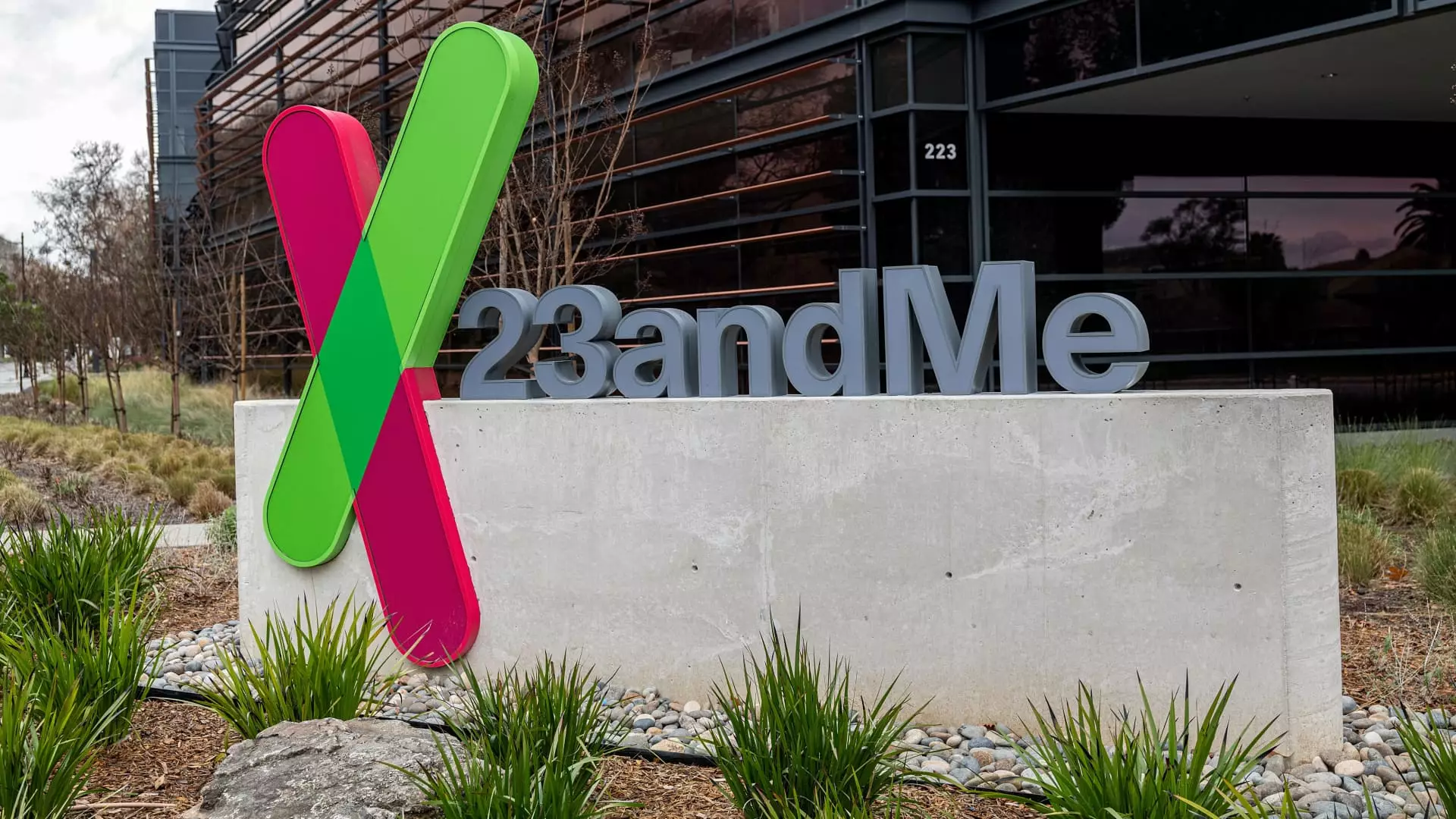In a startling twist that has sent ripples through the biotech landscape, 23andMe, a leader in personal genomics, has sought Chapter 11 bankruptcy protection. This significant move signals not just a challenge for the company, but a broader alarm regarding the future of personal genetic data. With a treasure trove of genetic information, including details of millions of individuals’ ancestry and health predispositions, the impending sale of its assets raises critical questions about data security, privacy, and ethical practices in a field that remains in its infancy.
The fundamental issue at hand is not just financial instability—although that is undoubtedly a principal concern—but the unprecedented risk associated with selling personal genetic data. Each DNA sequence is unique, akin to a fingerprint, making full anonymization virtually impossible. This reality, noted by experts at the National Human Genome Research Institute, emphasizes the immense responsibility that comes with managing such sensitive information. Should this data fall into the wrong hands, the potential for identity theft and insurance fraud escalates dramatically.
A History of Privacy Violations
The bankruptcy filing is compounded by a well-documented history of privacy breaches. In October 2023, 23andMe’s systems were compromised, exposing the genetic profiles of approximately seven million customers. This incident not only eroded consumer trust but also ignited serious discussions surrounding the ethics of storing genetic material. As regulators examine the ramifications of such breaches, the company’s assurances regarding the protection of data appear to ring hollow. Although 23andMe has pledged to maintain privacy standards during the transition, skepticism reigns supreme among consumers who fear their most personal information may become a commodity.
California Attorney General Rob Bonta’s urgent consumer alert underlines this skepticism, encouraging residents to consider the possibility of deleting their genetic data from 23andMe’s records. Such recommendations reflect a growing anxiety that the company’s financial struggles may prejudice its commitment to safeguarding user data. Indeed, the prospect of profiting from genetic material raises ethical questions deserving of scrutiny. Can users really trust that their privacy will be upheld by potential new owners?
Privacy and Data Deletion: Steps Towards Empowerment
An empowered consumer is an informed consumer. For users who feel uneasy about the fate of their genetic data amidst these recent developments, 23andMe has provided a straightforward path to delete their accounts and related data. This includes a series of steps that ensure a permanent severing of ties with the company and the removal of any genetic profiles from their records. While this option is commendable, one must ponder: why should consumers have to resort to such measures in the first place? Shouldn’t a company dealing with sensitive health data prioritizing transparent practices from the outset?
Experts like Adrianus Warmenhoven from NordVPN advocate proactive measures for consumers to protect their biological blueprints. Encouraging regular digital footprint assessments, credit monitoring, and cautious selection of data-sharing opportunities become paramount for consumers. With the potential for personal genetic information to be applied in unintended and nefarious ways, the responsibility clearly falls upon consumers to navigate these complex landscapes thoughtfully.
A Call for Greater Vigilance
As 23andMe grapples with its financial turmoil, the broader conversation about genetic data protection and privacy intensifies. Stakeholders—from consumers to policymakers—must prioritize the urgency of these discussions, especially as more companies enter the genetic testing space. As individuals await potential buyers of 23andMe to take over, a greater emphasis on ethical standards becomes necessary. The genomic digital age is upon us, and equipping individuals with the knowledge and means to safeguard their genetic identity is crucial.
What will the future hold for the wealth of genetic information housed within the folds of 23andMe? Only time will reveal whether the next chapter of this story champions personal privacy or sows seeds of mistrust and insecurity. The stakes couldn’t be higher, and as consumers weigh their options, they must remain vigilant guardians of their genetic secrets.

